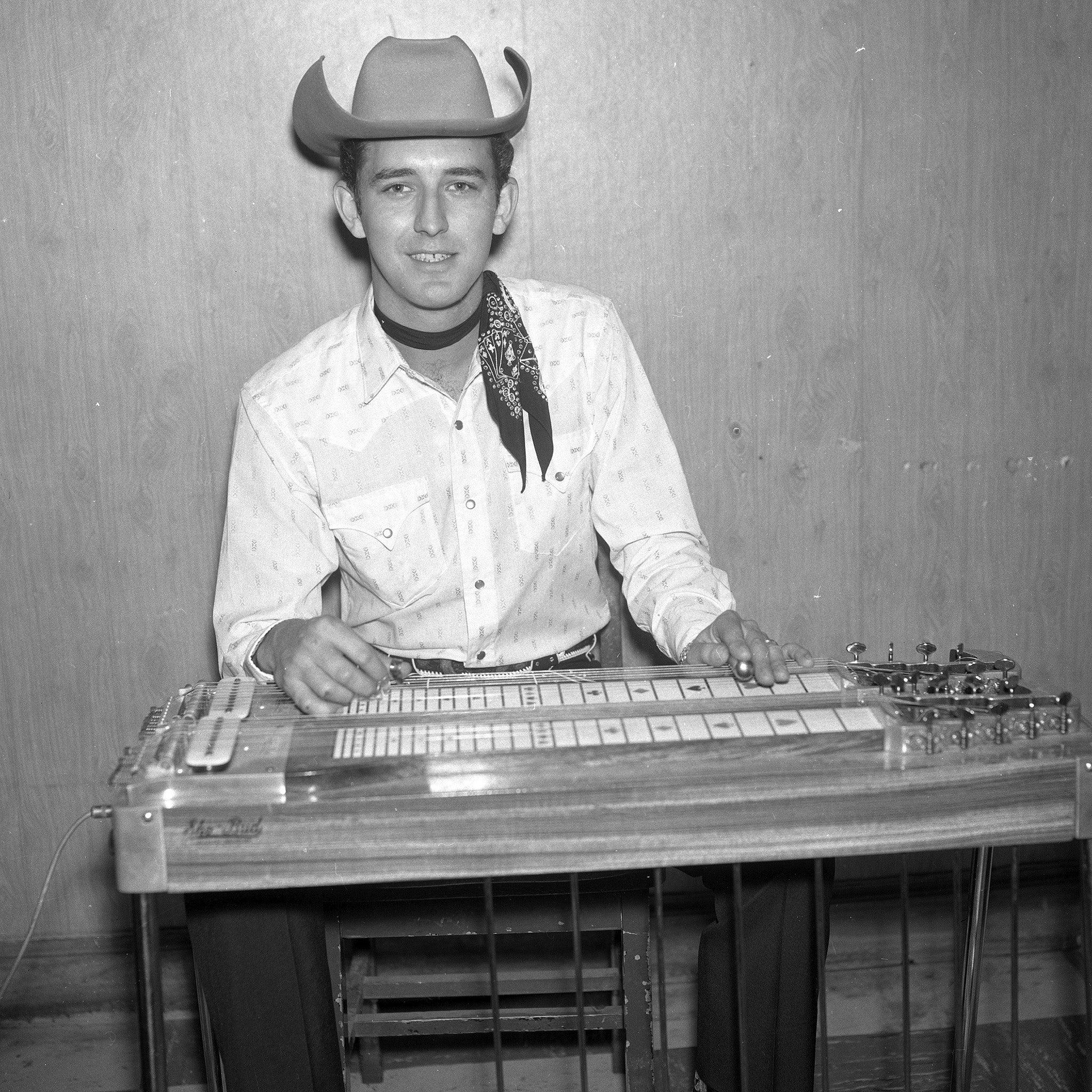Buddy Emmons: Doyen of the steel guitar who backed the Everly Brothers and the Carpenters
Emmons played on thousands of records

The steel guitar is the most distinguishable feature of country music – and many would regard Buddy Emmons, who played on thousands of records, as its greatest exponent.
Buddy Gene Emmons was born in Indiana in 1937. Encouraged by his father, he started playing the violin when he was 10, but he soon developed a love for the six-string lap steel guitar. Then he became proficient on the pedal steel – but he didn’t want to be like other steel guitarists who constantly looked down at the frets. To combat this, he turned the lights off and practised in the dark. He left school at 16 and started to play professionally in Detroit.
When he was 18, he stood in for Little Jimmy Dickens’ steel player and a short while later joined his backing unit, the Country Boys. They cut their own instrumentals, and Emmons’ compositions “Raisin’ the Dickens” and “Buddy’s Boogie” are still played by steel guitarists.
In 1958 Emmons became part of Ernest Tubb’s Texas Troubadours and he changed the functions of the pedals to create a crying effect for Tubb’s country hit “Half a Mind”. His session work included “Tender Years” and “Who Shot Sam” for George Jones.
In 1962 Emmons became part of Ray Price’s band, the Cherokee Cowboys, and found that Price was prepared to experiment. His bluesy playing on “Night Life” was highly unusual for a steel guitar and sounded wonderful. This led to his instrumental album, Steel Guitar Jazz. Price, however, favoured country ballads with strings, which minimised Emmons’ contribution; so Emmons decided to go his own way.
Working with a friend, Shot Jackson, he built his own instruments with innovative push-rod pedals and they formed a company, Sho-Bud, to market them. They also made an album together, Steel Guitar and Dobro Sound (1965).
The country singer Roger Miller asked Emmons to join his band in Los Angeles. Once there, he also found session work – and was featured on Judy Collins’ groundbreaking “Who Knows Where the Time Goes” (1968), and can be heard to good effect on “Someday Soon”.
When John Sebastian of the Lovin’ Spoonful recorded “Rainbows All Over Your Blues” (1970), he was so taken with Emmons’ playing that he acknowledged him in the lyrics (“Buddy and me came here to sing you a tune...”). Emmons can be heard on John Phillips’ album John, the Wolf King of L.A. (1970), Gram Parsons’ GP (1973) and the Carpenters’ multi-million selling, Now & Then (1973). He also played on film soundtracks for Henry Mancini.
Thinking that his partner was not innovative enough, Emmons left Sho-Bud and set up his own Emmons Guitar Company. He was constantly thinking of different ways of playing or improving the instrument.
Emmons returned to Nashville in 1975, and as well as session work, he made his own albums, including Buddy Emmons Sings Bob Wills (1976), Buddies (1977) with the fiddle player Buddy Spicher and Minors Aloud (1979) with the jazz guitarist Lenny Breau. He played in the Everly Brothers’ roadshow for 12 years.
In 1994 Emmons recorded It’s All in the Swing with the vocalist Ray Pennington and the Swing Shift Band, featuring standards from the 1930s. His playing eventually brought on a repetitive strain injury – and he gave up playing daily, instead working on projects with his friends.
Following the death of his wife, Peggy, in 2007, Emmons retired, bowing out at the International Steel Guitar Convention in St Louis. A tribute album, The Big E, was released in 2013 with contributions from Willie Nelson, Duane Eddy and Emmylou Harris.
Buddy Gene Emmons, steel guitarist: born Mishawaka, Indiana 27 January 1937; married 3 times (two sons, one daughter, two step-daughters); died 29 July 2015.
Join our commenting forum
Join thought-provoking conversations, follow other Independent readers and see their replies
Comments